What’s carb cycling? I share what the research says on whether you should be carbohydrate cycling to lose weight.
Unless you’ve been living under a rock, you’re probably aware that our society has declared a WAR ON CARBS. Too dramatic? But seriously, the carb hate out there is FIERCE. Every Jill, Jane and Julie is on some type of “Low Carb” diet, declaring to the world, “I’m OFF carbs now”. Personally, I can’t imagine a life without carbs but I’m sure it would be very dark and constantly full of anger and OMG, I’m getting hangry just thinking about it. That’s probably one of the biggest reasons most people fail at a no-carb or low carb diets. I’ve recently written about the king of the low carb diet (Keto) as well as it’s slightly more moderate but also brutal cousin (Paleo) and today I thought I would tackle another carb manipulation diet- carb cycling.
What is Carb Cycling?
Carb cycling is a fairly new concept which originated from the bodybuilding industry and was developed as a solution for low carb dieters to prevent constant restriction of carbohydrates which over time has a significant strain on the body.
LIKE FINALLY. People are realizing that the chronic restriction of carbs over time actually may have an impact on our health (nevermind our emotional wellbeing and relationship with food).
This concept has become super popular among mainstream circles like CrossFit gyms, social media posts and abundant diet books. I mean, I looked up the number of posts using the hashtag #carbcycling and caught wind of 243,449 posts. So, what is it exactly?
Carb cycling is defined as the planned alteration of carb intake to prevent fat loss and maintain metabolism with workout performance. Protein and fat intake are to remain constant in the diet, while your carb intake is manipulated based on your workouts. So, on days when you’re working out, your carb intake will be high (consuming between 150-200 grams/day) while during resting days, your carb intake will be low (below 75 grams/day). The theory behind this is that by alternating between high carb and low carb intake you can preserve your muscle mass, fuel your workouts and more importantly lose weight. So, the idea is that on days when you’re eating low carbs, your body will burn fat instead, so pretty similar to the ketogenic diet philosophy. If you haven’t yet checked out my post on all things keto, check it out now!
What Does Carb Cycling Look Like?
Diagram from Precision Nutrition
Basically, out of a 7-day week, you have 2 days of moderate-high carb intake and the remaining 5 days are lower carb days. The days when you’re consuming a high carb intake are known as re-feeds and during those days you may need to adjust your fat and protein intake to accommodate the increased calories from carbs. So, you’re not just balancing carb intake, but also balancing your calorie intake as well which requires a full understanding of macronutrient distributions and appropriate calorie recommendations based on your physical activity. It’s not the simplest of diet fads, but honestly, maybe that’s for the better- proper nutrition (especially sports nutrition) is complicated stuff.
Carbohydrates and Sports Performance
Based on countless journal articles and sports experts, we know the role that diet plays in sports performance and more specifically the role that carbohydrates have in fueling workouts. Especially with workouts that require a ton of endurance, our bodies rely on the glucose stored in our muscles and liver and during long workouts these stores get depleted. So, athletes will strategically fuel prior to a workout to fill those stores up to prevent that from happening. During workouts that last more than an hour, athletes may have to fuel up on carbs during the workout just to get through (though I assume most of us aren’t that hard core). We also know the role of fueling with carbohydrates post workout as well. In order to replete those glucose losses, carb intake helps to do that and protein helps to repair muscle and promote a muscle building environment. I think we can all agree that carbohydrates are integral in sports performance, but what about restricting carb intake on days when you’re not engaging in high intensity workouts?
Well, the whole idea behind carb cycling is that if you’re not using the carbs in a workout, why consume that much of them that day?
Well, carbs do a lot more for us other than fuel our workouts so we don’t run out of oil in the tank. Here are just a few of their benefits.
Brain Function
Carbs are your brain’s ONLY source of energy. Glucose is readily absorbed in the brain and we rely on carbs to help us focus, give us energy and just generally get us through the day. The Institute of Medicine and the Canadian Diabetes Association suggest that our brains need approx. 130 grams of carbs each day for optimal performance. So unless you are cool to just chill out and watch Netflix all day on your “workout rest days”, the 75 grams/day may not feel like enough. Evidence has shown that our diet also directly impacts our mental health. In this systematic literature review, researchers suggested that high intakes of fruits, vegetables, fish and whole grains may be associated with reduced depression risk, so getting our carb on also puts us in the best mood.
Fibre Fun
Aside from normal brain function, carbs help us get in that fibre! From whole grains and fruit to vegetables and legumes, carbs provide the richest sources of fibre, key B vitamins and folic acid. Even though you’re alternating between high carb and low carb days while carb cycling, you still may be falling short on your fibre needs, and you may miss out on some bonding moments with your porcelain bowl.
So as you can see, when you miss out on consistent carb intake, you’ll miss out on these benefits.
Benefits of Carb Cycling
Weight Loss
So maybe the carb cyclers don’t care about those carbohydrate benefits, especially if they just have their eye on one thing: weight loss. So, does carb cycling burn fat like the fitness experts claim?
There’s very limited evidence that carb cycling promotes fat burning, I mean that’s a pretty huge claim, and as we know, there are no specific foods or restriction of foods that can burn fat. Check out my article here where I discuss the myth of fat burning foods. However, the only study I could find examined the effects of participants consuming a low carb diet for 3 weeks and then were fed a diet that progressively increased carbs for another 3 weeks. They found that as carbohydrate intake was increased slowly over time, fat oxidation was accelerated. A few things are wrong with this study. First, it was only 6 weeks and had a super small sample size (16 adults). On top of that, we don’t know whether this was a one-time thing and whether the continuous cycle of cutting carbs and re-introducing them will have that same effect over time. For now, the fat burning claim, at least over any other restrictive diet, is weak, to say the least.
That being said, initially you probably will lose weight… we know from lots of experience that when you cut out a food group or severely restrict it, you tend to lose weight. In this British study they found that participants who restricted carbs for 2 days/week lost an average of 9 pounds over four months. Just remember that in most of these low carb studies, they tend to be super short term. We don’t usually have a lot of long term studies simply because most people can’t stick to diets like this for very long.
But let’s say you had tremendous will power, is that weight loss really fat? Initially most of the weight you drop on a low carb diet is water weight because carbs hold onto water. This is why fitness bodies drastically cut carbs and then dehydrate themselves before a competition so they look tighter, leaner and more defined.
Aside from a lot of anecdotal accounts, there has not been enough evidence or any research on carb cycling to suggest that it aids in weight loss any more than any other diet.
Insulin Sensitivity
During a 16-week study, individuals following a modest reduction in dietary carbs experienced improvements in body composition, fat distribution and glucose metabolism. From a diabetes perspective, it is important to watch your carb intake to choose higher fibre carbs like whole grains and fruits. But that is the only situation where controlling carb intake would be warranted, and it is clear that carb cycling would be very dangerous for someone with diabetes because of the inconsistent intake would spike and drop blood sugars.
In another study, daily energy restriction was compared to intermittent energy and carb restriction. They found that the overweight women allocated to the intermittent energy and carb restriction group experienced greater reduction in body fat compared to the daily restriction group and insulin sensitivity improved.
It is still unknown whether carb cycling has a significant impact on blood sugars, and more research will be needed to make that claim.
Improves Cholesterol
A few studies have shown that low carb diets can help to improve cholesterol. A study by the American Journal of Cardiology showed that occasional bouts of fasting may improve cardiovascular measures, however over time can have negative effects. The results suggested that a very low carb diet increased HDL cholesterol (the “good cholesterol) and decreased triaglycerol concentrations. But it’s important to note that this study was only conducted on healthy normal weight women, so it’s unknown whether a low carb diet will benefit individuals with high cholesterol. Also, the study found that these effects were favorable in short term low carb diets, so I’m not sure whether a chronic low carb intake would produce the same effects. Lastly, the study showed that the low carb diet led to an increase in LDL which is also known as the “bad cholesterol” and the higher the amount in the blood, the higher likelihood of developing a heart-related disease. Plus, another prospective cohort Swedish study showed that a low carb diet was actually associate with an increased risk of cardiovascular disease. Ultimately, the research is hit and miss.
So, most of the research we have to date isn’t looking at carb cycling per se, but rather high and low carbohydrate diets in general. Is there something unique about the carb cycling process that is the magic formula to good health? Possibly, but we don’t have the metrics to prove that yet. With that said, there are a few things that concern me with this style of dieting that I think should be considered.
Drawbacks of Carb Cycling
Inconsistent
This concept is super inconsistent. First of all, after doing a ton of research on carb cycling I noticed that there are a bunch of different types of carb cycling methods and there are not set numbers of how much carbs you should have and how much you should restrict. This tells me that there isn’t enough research or science to back up carb cycling guidelines. This also worries me because when there is a lack of guidelines, people may make drastic decisions without seeking the advise of a regulated expert (like a sports dietitian) which can put them at significant risk. This is particularly problematic for athletes who may not be properly fueling their workouts, and may be at an increased risk for injuries.
One positive thing is that carb cycling is at least straying from the RESTRICTIVE nature of most diets and is heading in a more FLEXIBLE way of eating. It’s also responding, at least theoretically, to changes in our bodies needs by having more carbs on the days you’re training. Having said that, there is still a restriction element to carb cycling which can lead to disordered eating.
Metabolism shifts
When you engage in this seesaw-like relationship with carbs, your body may get confused. One minute you’re limiting your carb intake to 75 grams a day and the next you’re loading up on carbs. Sometimes, when you deprive your body of something, your metabolism slows down in an effort to conserve energy. Then once you reintroduce the carbs, your body will hold onto every bit of water and sugar which may lead to bloating and potentially unwanted weight gain. On the flipside of this, many carb cyclers would argue that having the high carb days “shocks” your body into speeding your metabolism up, which is the concept behind intermittent fasting. Both of these theories are plausible, however the lack of evidence makes this still an open discussion and not yet a concrete conclusion.
Verdict on Carb Cycling
I can’t in good conscious get behind a diet that is lacks any sort of real concrete evidence. This concept relies on the dieter to make these decisions, which concerns me tremendously especially if there is a lack of knowledge in the dangers of constant restriction. I also can’t support a diet that restricts any macronutrient, because you likely will struggle to maintain it over time. Carb cycling also features a day known as a “cheat day” where you can eat whatever you want. You guys may already know this, but I hate cheat days. This is a whole other blog post. Instead of putting all this effort into a pattern of specific restriction, I believe your time and energy could be better spent normalizing your relationships with food.
So now I want to know:
Have you tried carb cycling?
Did it work for you?
What were the side effects?
Were you able to maintain it?
Leave me a comment below with your thoughts!
Contribution By:
Sofia Tsalamlal, MHSc, RD
Updated on July 20th, 2018

Abbey Sharp is a Registered Dietitian (RD), regulated by the Ontario College of Dietitians. She is a mom, YouTuber, Blogger, award winning cookbook author, media coach specializing in food and nutrition influencers, and a frequent contributor to national publications like Healthline and on national broadcast TV shows.


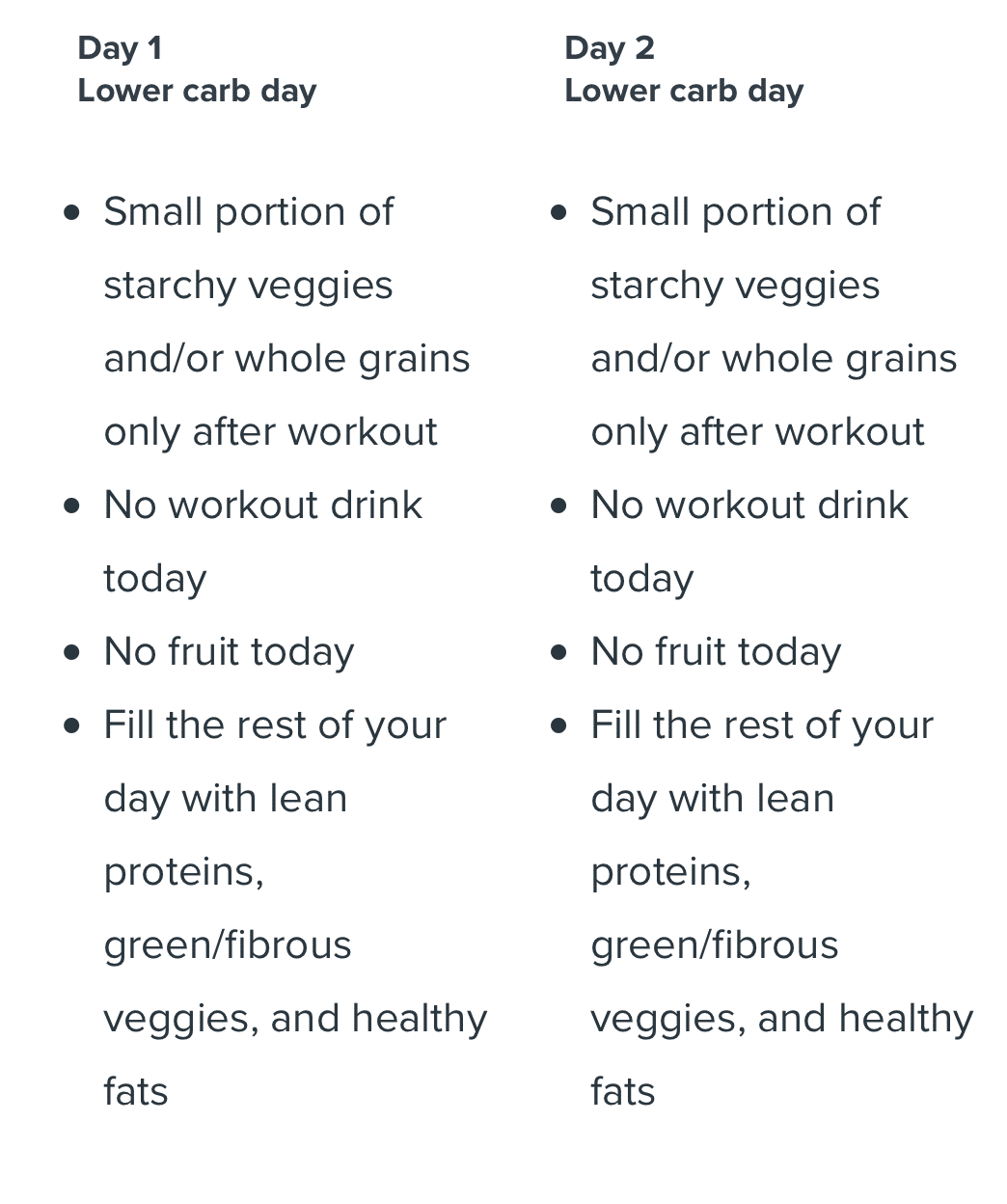
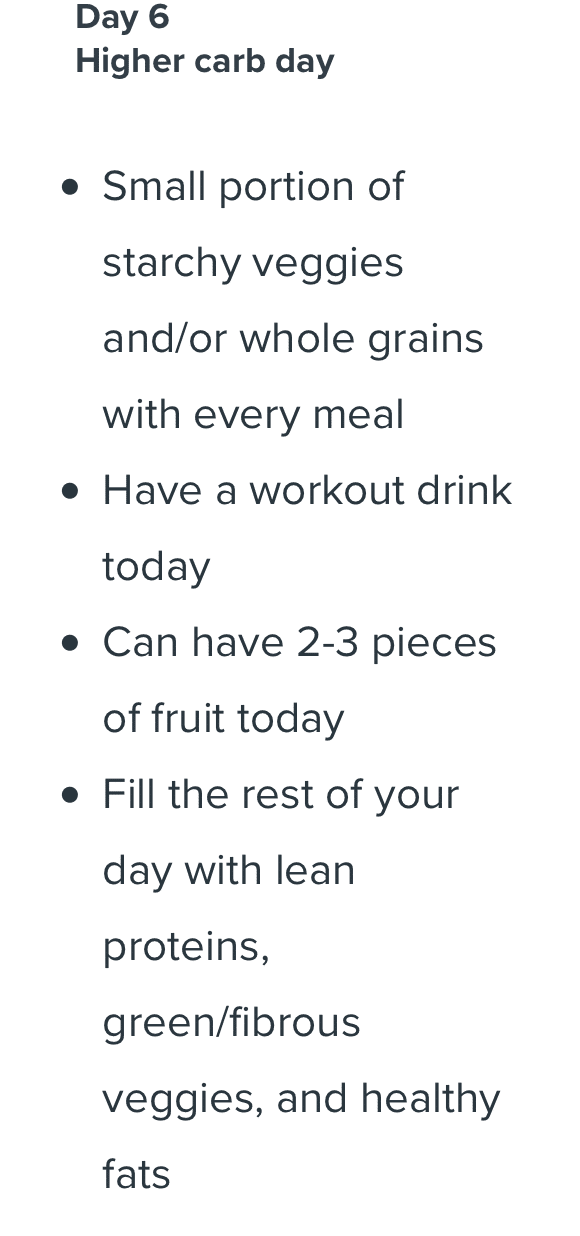



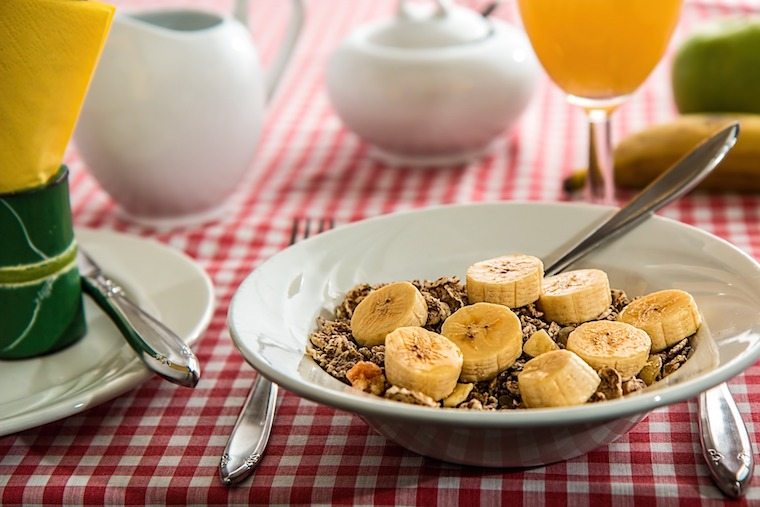
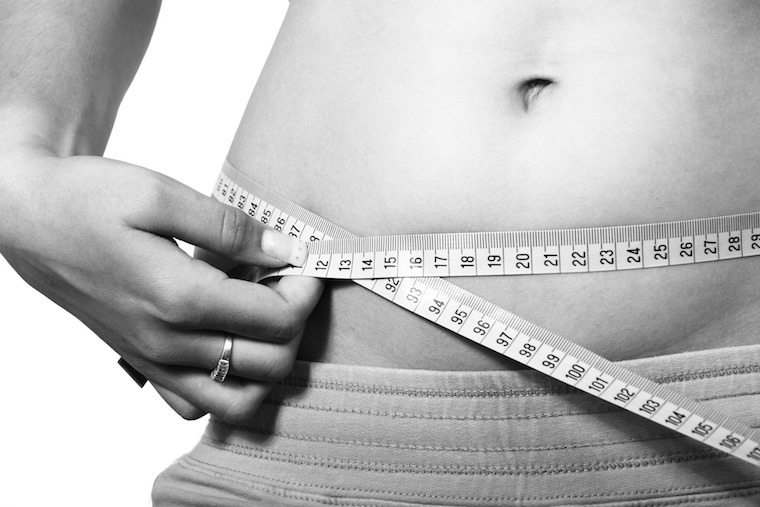





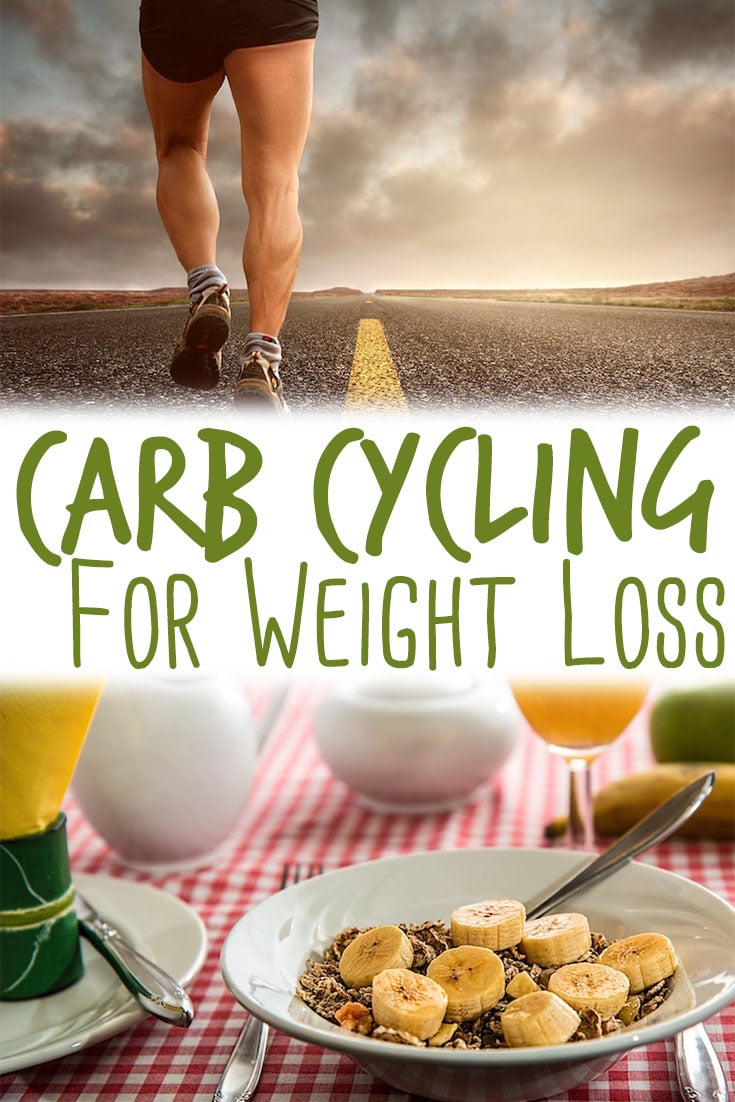
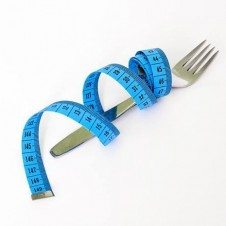



Karen G. says
Great post! I’ll admit, I didn’t know much about carb cycling, thanks for the info!
I personally love carbs, and need them in my life, at least a little bit… 😉
Abbey Sharp says
yesss I’m with ya all the way!
Jill Conyers says
This is the most thorough articles I’ve read on carb cycling. The nerd in me loves your research.
Abbey Sharp says
Aw thanks so much Jill! I was totally nerding out as well 🙂
Esther says
Great post!!!
I’m so tired of ‘healthy’ social media people promoting low carbs!!
Give them to me!!
Abbey Sharp says
YES Esther! Team Carbs
Angela @marathonsandmotivation.com says
This is something I had not heard of before and I find it very interesting! I do love my carbs, and as an endurance athlete, I need them!
Abbey Sharp says
yes exactly! A must!
Mikki says
Wow! So much great information! Hi had not heard of carb cycling!!
Thanks for posting this.
Abbey Sharp says
Thanks for reading!
Farrah says
Great post! I don’t know if I’ve ever consciously carb cycled. I did restrict carbs a little when I was trying to cut weight for a powerlifting competition, but generally, I’m all for moderation and I love my carbs! 😛
Abbey Sharp says
yesss. Me too 🙂
Chrissy @ Snacking in Sneakers says
No carb cycling for me. I don’t see strong research, and I like bagels 😉 For real though, I function better when I have moderate carbs in my diet – both from a mental and sports performance standpoint.
Abbey Sharp says
Yup, totally agree.
Julie @ Running in a Skirt says
I’m the first to admit that carbs are my friend. I honestly get cranky when I don’t eat them. It’s just something my body needs. Now I do reach for healthier carbs and not refined ones. Great article.
Abbey Sharp says
Yesss i’m the same way! It’s just about the quality!